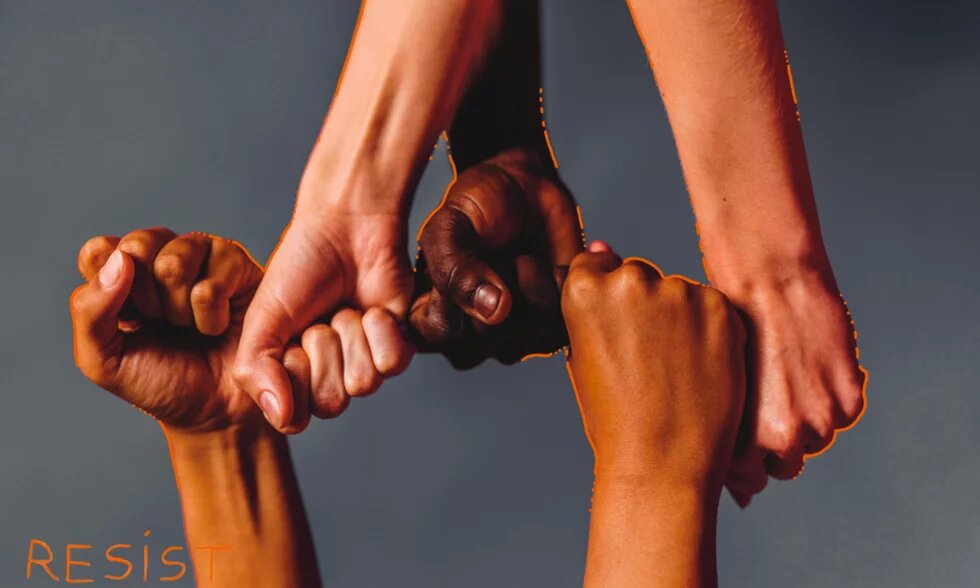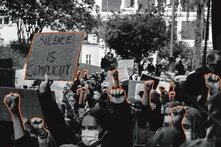Through sustained feminist advocacy, the Economic Community of West African States (ECOWAS) Community Court of Justice reframed female genital mutilation as torture and compelled Sierra Leone to legislate against it — setting a regional precedent for women’s rights protection in Africa.

The struggle against female genital mutilation (FGM) in Africa is not merely a health or cultural issue, it is a question of human dignity, bodily autonomy, and justice. For decades, feminist movements have insisted that practices, which silence, wound, and endanger women, cannot be tolerated under the pretext of tradition. Litigation has become one of their sharpest tools, prying open the law to demand accountability from states that fail to protect women and girls. The recent case of Forum Against Harmful Practices and Others v. Republic of Sierra Leone, decided by the Economic Community of West African States (ECOWAS) Community Court of Justice in July 2025, illuminates this ongoing resistance.
The Case That Shook Sierra Leone
The case was brought by the Forum Against Harmful Practices (FAHP), the organisation We Are Purposeful, and Ms. Kadijatu Balaima Allieu, a citizen of Sierra Leone, who had been forcibly subjected to FGM by the Bondo Society, detained, and threatened. They alleged that Sierra Leone had failed to criminalize FGM and had violated Ms. Allieu’s rights, along with those of countless other women and girls. Their claim was rooted in law. They pointed to the Protocol to the African Charter on Human and Peoples’ Rights on the Rights of Women in Africa (Maputo Protocol), especially Article 2(1)(b), obligating states to eliminate discrimination against women, and Article 5, which demands prohibition of harmful practices. They invoked the African Charter on Human and Peoples’ Rights, with Article 5 (dignity, freedom from torture), Article 6 (liberty and security), and Article 7(1)(a) (right to a remedy). They drew on the African Charter on the Rights and Welfare of the Child (ACRWC) (Article 21), which requires the elimination of harmful practices. At the international level, they reminded the Court of Sierra Leone’s duties under the International Covenant on Civil and Political Rights (ICCPR), notably Article 7, which prohibits torture, and Article 2(3), the right to an effective remedy.
What the Court Said and Why It Matters
The judges affirmed that subjecting women and girls to FGM constitutes cruel, inhuman, and degrading treatment amounting to torture.
The Court’s decision is a landmark affirmation that rights protection requires precision, not promises. It held that Sierra Leone’s reliance on general gender-equality statutes and an unpassed Child Rights Bill could not substitute for explicit legislation criminalizing FGM. By stressing that Article 1 of the African Charter and Article 5 of the Maputo Protocol demand a clear prohibition with enforceable sanctions, the Court rejected partial or aspirational frameworks as inadequate. Equally important was its reminder that due diligence is concrete: the state’s failure to investigate, prosecute, and protect in Ms. Allieu’s case amounted to an ongoing violation of rights to security and effective remedy under Articles 6 and 7 of the African Charter and Article 2(3) of the ICCPR.
In its reasoning, the ECOWAS Court also drew a direct line between FGM and the prohibition of torture. Citing Article 5 of the African Charter and Article 7 of the ICCPR, the judges affirmed that subjecting women and girls to FGM constitutes cruel, inhuman, and degrading treatment amounting to torture. The Court rejected any cultural justification, emphasizing that the predictable physical pain, psychological trauma, and permanent harm caused by FGM meet the threshold of severity required under international and regional definitions of torture. By doing so, the Court elevated the issue beyond cultural debate and framed it squarely as a violation of fundamental human dignity and bodily integrity.
The Court elevated the issue beyond cultural debate and framed it squarely as a violation of fundamental human dignity and bodily integrity.
The ruling also carried strong normative weight in rejecting cultural relativism and centering survivors in remedies. Sierra Leone’s attempt to analogize FGM with elective cosmetic surgery was dismissed: under Article 5 of the Maputo Protocol and Article 5 of the African Charter, no custom can justify practices that predictably cause grave harm, particularly to children and adolescents. By awarding Ms. Allieu 30,000 US dollar in damages alongside structural orders, mandating legislation, education, and prosecution, the Court modeled an integrated approach to reparation.
This dual emphasis, both individual and systemic, resonates with Article 25 of the Maputo Protocol and Article 2(3) of the ICCPR, underscoring that vindicating rights demands not only restoring survivors but also reforming institutions to prevent recurrence. In this way, the judgment strengthens a regional norm, harmful practices are never shielded by culture, and survivor-centered remedies must be embedded in state accountability.
State Inaction as an Enduring Form of Structural Violence
For feminist movements, this judgment is more than a legal victory. It is the embodiment of decades of resistance. It affirms what activists have long argued, that the state’s failure to act is itself a form of violence. It confirms that silence is complicity. By leaning on the Maputo Protocol and the African Charter, feminists also reclaim African legal texts as their own weapons. Too often, governments portray women’s rights as foreign impositions. Yet the instruments at the heart of this judgment are homegrown, developed within the African Union to reflect the continent’s realities.
Equally significant is the Court’s recognition of a survivor’s voice. By centering Ms. Allieu’s experience, the Court acknowledged that law must not only speak in abstract principles but respond to lived pain. Feminist advocacy has long demanded that survivors be at the centre of justice processes, this judgment reflects that demand.
The Gambia’s Pending Case: Constitutional Headwinds, Regional Tailwinds
Criminalizing FGM is a proportionate and necessary measure to protect life, dignity, bodily integrity, and equality, values also rooted in national constitutions and African instruments.
Before the Supreme Court of The Gambia (SC Civil Suit No: SC/CS/003/2025), several plaintiffs challenge Sections 32A–32B of the Women’s Act (2010, amended 2015) criminalizing FGM, asserting violations of cultural and religious rights and legislative overreach. The Attorney General defends the law as a constitutional and international-law-aligned measure to protect women and girls. An affidavit in June 2025 confirms the matter is pending. While not binding on the Gambian Supreme Court, the ECOWAS decision articulates regional expectations consistent with Maputo Protocol Article 5 and ACRWC Article 21(1), that states must prohibit harmful practices, not merely discourage them.
Even where constitutions protect culture or religion, rights are subject to limitations grounded in public order, public health, the rights of others, and the best interests of the child. Criminalizing FGM is a proportionate and necessary measure to protect life, dignity, bodily integrity, and equality, values also rooted in national constitutions and African instruments. Especially for minors, consent is legally and ethically fraught. The ECOWAS Court’s framing of FGM as cruel, inhuman, or degrading treatment narrows any space for a ‘freedom to harm’ argument. The Gambian Court can look to the ECOWAS Court’s insistence that investigation, prosecution, and remedy are integral, not optional, components of state duty. In short, the ECOWAS judgment equips the Gambian Court with a robust African-sourced doctrinal scaffold for upholding the FGM ban against cultural or religious freedom claims, confirming that harmful practices fall outside constitutional protection.
Feminist Voices Beyond the Court
The law alone cannot dismantle patriarchy, but a judgment can shift norms, force governments to act, and empower communities to demand more.
Litigation opens the door, social change walks through it. The victory in Sierra Leone was possible only because of feminist organizing: the FAHP, We Are Purposeful, and countless unnamed activists who turned pain into testimony and testimony into binding precedent. Their work reflects a wider African movement, from Uganda to Botswana, South Africa to Kenya, where feminist advocates wield litigation as one strand of resistance. They know the law alone cannot dismantle patriarchy, but they also know that a judgment can shift norms, force governments to act, and empower communities to demand more. FAHP & Others v. Sierra Leone is a feminist judgment because it names harm, imposes duties, centers a survivor, and orders structural change. It rejects the lazy fatalism that cloaks violence in ‘tradition’. It insists that African law through the African Charter, the Maputo Protocol, and the ACRWC binds states to protect the bodies and futures of women and girls.
This matters far beyond Sierra Leone. For instance, its resonance extends to The Gambia, where the Supreme Court now confronts the same question in a country with the continent’s highest rate of FGM. As an ECOWAS member, its decision will inevitably be measured against Sierra Leone’s. In 2025, feminist voices are louder than ever, using law as both shield and sword, they remind us that judgments must be translated into justice, so the next generation remembers rites of passage by their joy, not their scars.

